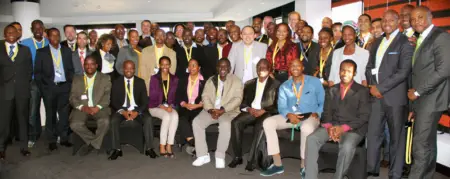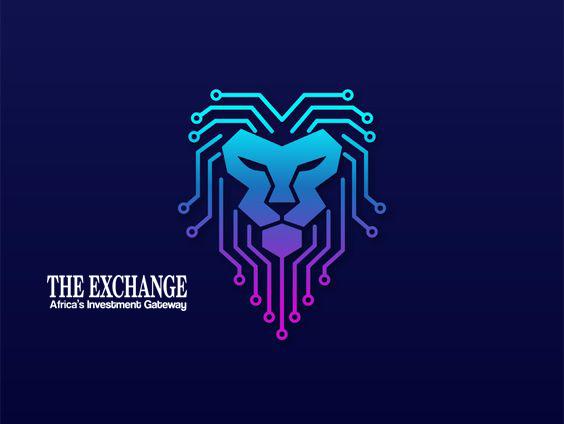- Stanbic PMI Report: Mixed performance as Kenya’s agriculture, construction offset manufacturing decline
- Uganda’s land management gets a tech makeover to boost transparency
- Nigeria’s output dips fastest in 19 months on a sharp rise in costs
- Apple faces growing backlash over Congo exploitation
- Why East Africa is staring at higher wheat prices in 2025
- Nairobi Gate SEZ pumps $7 million into Kenya’s agro-processing industry
- What impact will the US election have on Africa?
- Russia and Tanzania unite to double trade, boost Africa market access
Browsing: Eric Osiakwan
- The Cortex Hub and Angel Fair Africa have reached the milestone of a decade of nurturing innovation, fostering entrepreneurship, and connecting African startups with investors.
- The initiative aimed to create an innovation hub in the Eastern Cape to unlock the latent potential of the region’s emerging talent pool and drive technological innovation and break down barriers hindering growth.
- It was initiated by the author, who had previously worked in the ICT field during the apartheid era and had a personal interest in driving technological advancement and economic empowerment in the region.
In a landscape defined by the ebb and flow of African entrepreneurship, milestones are more than mere time markers; they stand as beacons of progress. This year, we gather to celebrate an extraordinary achievement as both The Cortex Hub and Angel Fair Africa reach the impressive milestone of a decade. A decade of unwavering dedication to nurturing innovation, fostering …
Mergers and acquisitions worth US$52B were completed in South Africa during the first half of 2021, with the value of deals growing by 958% from 2020 with the tech sector in the lead according to Refinitiv Data that provides financial markets and infrastructure data . According to Digest Africa, the value of mergers and acquisitions in the African tech ecosystem in 2018 was US$504M with 24 out of the 39 deals taking place in South Africa making it the country with the most mergers, acquisitions and exits among the KINGS countries.…
Nairobi is the leading Fintech ecosystem city in Africa according to the 2021 Global Fintech Rankings published on 8th July 2021 in which it jumped 26 places to the 37th position globally beating both Lagos and Accra[1]. Kenya’s President, His Excellency Uhuru Kenya stated at a UK summit that “Nairobi International Financial Centre (NIFC) has come of age to be the leading financial hub on the continent”[2]. Kenya is making a major incursion to position itself as the financial hub of Africa on the back of its fintech advantage as President Uhuru Kenyatta signed a $184 million deal with Dominic Raab, Secretary of State for Foreign, Commonwealth and Development Affairs and First Secretary of State of the UK during his three-day official visit to that country[3]. Kenya’s leadership of the Fintech world in African gives it the impetus to be an international …
Africa’s leading Mobile Network Operators (MNOs), MTN, Vodacom and Safaricom, have recently made bold plans to venture into the increasingly dynamic world of fintech. On 23rd June 2021, Safaricom launched its super app, which creates an ecosystem of mini-apps from the network operator as well as third-party apps that feed off the super app[1]. A month prior to this development, Safaricom, the leading MNO in Kenya announced plans to release an Application Protocol Interface (API) for the super app to enable third-party app developers to build more products and services on top of the super app[2]. This means the super app is going to be an app store that consolidates the reach of Safaricom.
In May, MTN also announced plans to become a tech platform to rival the likes of Apple and WeChat as part of their Ambition 2025 which is currently being implemented[3]…
I ended my May 2021 essay with the hypothesis “…leading fintechs might turn around and start acquiring the banks” and, sure enough, on the 12th of May 2021, the Competition Authority of Kenya in a gazette notice approved the acquisition of 84.89% stake in Century Microfinance Bank by Branch International Limited – a leading global fintech with operations in Kenya[1]. One of the signs of a maturing ecosystem is home grown ventures mature into unicorns[2], gazelles and zebras[3], increased mergers and acquisitions[4] and the entry of global tech giants hungry for a piece of the action – the subject of this essay. So, whilst the Branch acquisition was unexpected, it was unsurprising when Twitter announced on 14th April 2021 that they are setting up their Africa HQ in Ghana[5]. On the very same day Amazon announced an investment of …
On 1st of April, as I was publishing my Uniconization of African Fintech piece[1], Mastercard was busy announcing their $100 million investment into Airtel Money (Airtel Africa’s mobile money subsidiary) to acquire a minority position – half what TPG Capital did[2]. Even though I had gotten wind of the transaction knowing that Mastercard was already in bed with Airtel Money[3] – some part of me thought of it as an April fools joke…. On the 12th of April 2021, Mobile Telecom Network (MTN) announced the valuation of their mobile money business at $5 billion making it the 7th African fintech unicorn with plans to bring in minority shareholders before going public[4]. Given that Visa is already in bed with MPESA (Vodacom and Safaricom’s mobile money business)[5], it is a matter of time before Visa also invests. The unicornization …
The first quarter of 2021 ended on a great note as two African fintech businesses gained unicorn status, a rare fit amidst a ragging global pandemic that is finally being aggressively tackled by the speedy supply of much-needed vaccines. Such is the African story – a trail of surprises in the midst of uncertainty. On 18th March 2021, Airtel Africa announced it had received a $200M investment from TPG’s Rise Fund at a valuation of $2.65B making it the latest African unicorn[1]. Exactly a week before, March 10th, 2021, Flutterwave from Nigeria also announced a $170M investment from Avenir Growth Capital, Tiger Global Management and others at a billion-dollar valuation[2]. In the tech world hitting a billion-dollar valuation is a big deal – you earn the name Unicorn, a mythical animal that represents the statistical rarity of successful ventures coined in 2013 by …
Three significant news items went on the global wire on 25th February 2021 as follows;
- Liquid Telecom, a member of the Econet Group that has laid more than 70,000km of fiber optic cable across Africa[1], raised $840M financing package (US$620M bond and a US$220M equivalent term loan in Rand). This was Liquid Telecom’s second bond issue and it was 5.5 times oversubscribed with JP Morgan Chase & Co, Standard Chartered Plc and Standard Bank Group Ltd as joint global bookrunners[2].
- Convergence Partners, a leading Pan African Private Equity fund[3] entered into an agreement with Nasdaq listed Inseego (INSG) to acquire 100% of their subsidiary Ctrack’s operations in Africa and the Middle East[4].
- Ecobank Nigeria, the largest country operations of Ecobank Transnational Incorporated (ETI), issued a London listed $300M bond that was 3 times oversubscribed[5] and drew significant international
In the last century, the fashionable and accepted route to success for young Africans was to complete their education and join the corporate world. A few university students aspired to become entrepreneurs; most educational institutions did not offer entrepreneurial programs. With few exceptions, African families used to guide their children to join a leading multi-national or work for a state institution, hoping they would climb the corporate ladder to become CEOs or at least senior management. That was prestigious until the paradigm shifted to tech entrepreneurship with the emergence of the computer, mobile and Internet industry in the latter part of the 20th century. Whilst a lot of African families have built successful entrepreneurial ventures in the past, this essay emphasis the growing move of corporates to tech entrepreneurship.
The likes of Dr. Nii Narku Quaynor who started Network Computer Systems (NCS) in 1988 and played a key role …
The last decade (2010-2020) was an important experiment in African tech ventures moving out of the “labs” and becoming real businesses that saw investors backing them with so much capital that from 2014 to 2019, the total number of VC deals doubled every year until the advent of COVID-19, which disrupted global economic activities in 2020.[1] However, 2020 saw some notable exits including World Remit’s acquisition of Sendwave for $500M[2], Network International buying DPO for $288M[3] and Stripe taking over Paystack for $200M[4] to enter the African market as Egypt’s Fawry gain unicorn status.[5] The IPO of Fawry the third Africa tech venture reach market capitalization of over $1 billion to after Jumia[6] and Interswitch[7] was overs subscribed 30 times. 2020 ended with another notable exit, with two initial shareholders in Ghanaian fintech startup, Zeepay, exiting from an initial investment of about …












